𝄞 They were called in from the glen,
And the country found them ready
At the stirring call for men.
Let no tears add to their hardship,
As the soldiers pass along,
And although your heart is breaking
Make it sing this cheery song:
Keep the home fires burning
While your hearts are yearning,
Though the lads are far away,
They dream of home.
There’s a silver lining,
Through the dark clouds shining,
Turn the dark cloud inside out,
Till the boys come home. 𝄞
1914
Men march in the streets between Swindon Junction and Swindon Old Town stations;
transportation of military personnel and equipment starts.
The mayor speaks, to loud cheers:
‘You are leaving home and friends at the call of duty …Mixed emotions on the platform as the train left for Portsmouth.
We will see that they do not want. Our good wishes go with you …
Be of good cheer. Goodbye, Good luck, and God bless you all!’
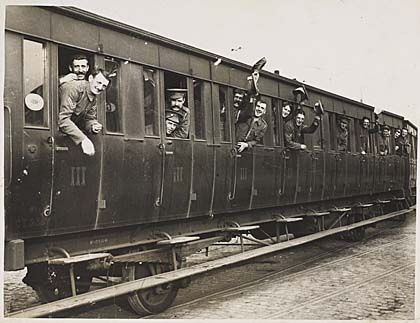
Meetings in the Great Western Park and the Mechanics’ Institute:
two hundred join up by the end of the month
𝄞The Army and the Navy need attention,
The outlook isn’t healthy you’ll admit,
But I’ve got a perfect dream of a new recruiting scheme,
Which I think is absolutely it.
If only other girls would do as I do
I believe that we could manage it alone,
For I turn all suitors from me but the sailor and the Tommy,
I’ve an army and a navy of my own.𝄞
Lydiard Millicent’s Viscount Bolingbroke enlists as a private – uniquely for an aristocrat.
He will suffer from shell shock and be eventually discharged from the army.
The outlook isn’t healthy you’ll admit,
But I’ve got a perfect dream of a new recruiting scheme,
Which I think is absolutely it.
If only other girls would do as I do
I believe that we could manage it alone,
For I turn all suitors from me but the sailor and the Tommy,
I’ve an army and a navy of my own.𝄞
Lydiard Millicent’s Viscount Bolingbroke enlists as a private – uniquely for an aristocrat.
He will suffer from shell shock and be eventually discharged from the army.
that of William George Sheldon (his ship, HMS Pathfinder, was blown up by a mine).
Then comes the news of the death of Captain Gerald Ponsonby (died from wounds), son of the former vicar of St Mark’s Church.
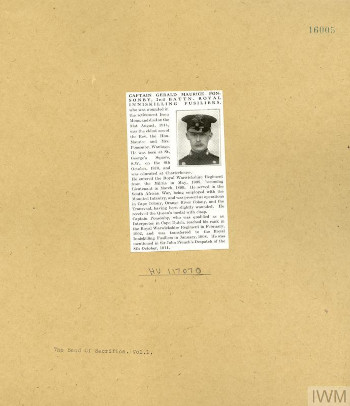

The Germans came through the wood in mass … with bugles blowing …
At about seventy-five yards range an officer sprang from the trench and yelled “Fire!”
Then the Germans got a taste of … 15 rounds a minute
The Wiltshires then sprang from their trenches and charged with the bayonet
It was a horrible din
as dusk settled down all that could be heard were the groans of the wounded.’
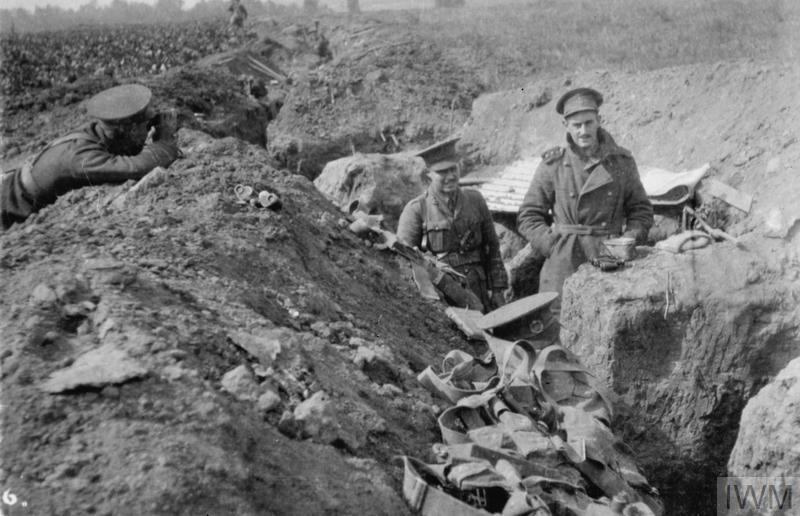
Refugees arrive in Swindon for the duration. Some thirty homes furnished; a hostel established in Bath Road, too.
‘How hospitable Swindon has been! And what great sympathy we received everywhere!”
By the end of the month over 3,000 Wiltshiremen enlisted; Lord Methuen said this showed their sobriety and their resistance to the demon drink.
On Sunday I walk out with a Soldier,
On Monday I’m taken by a Tar,
On Tuesday I’m out with a baby Boy Scout,
On Wednesday a Hussar;
On Thursday I go out with a driver,
On Friday, the Captain of the crew;
But on Saturday I’m willing, if you’ll only take the shilling,
To make a man of any one of you.
‘It was about this time that … A German corps sent forward the front files dressed in the uniforms taken from the killed and wounded of the Wilts Regiment.
On Monday I’m taken by a Tar,
On Tuesday I’m out with a baby Boy Scout,
On Wednesday a Hussar;
On Thursday I go out with a driver,
On Friday, the Captain of the crew;
But on Saturday I’m willing, if you’ll only take the shilling,
To make a man of any one of you.
The English commander was suspicious and gave orders to fix bayonets … ‘Nein, nein! … Ve are de Vilts.”
The dialect was hardly suggestive of the Downs, and the English officer gave the order to charge.’
I teach the tenderfoot to face the powder,
That gives an added lustre to my skin,
And I show the raw recruit how to give a chaste salute,
So when I’m presenting arms he’s falling in.
It makes you almost proud to be a woman.
When you make a strapping soldier of a kid.
And he says ‘You put me through it and I didn’t want to do it
But you went and made me love you so I did.
That gives an added lustre to my skin,
And I show the raw recruit how to give a chaste salute,
So when I’m presenting arms he’s falling in.
It makes you almost proud to be a woman.
When you make a strapping soldier of a kid.
And he says ‘You put me through it and I didn’t want to do it
But you went and made me love you so I did.

And with so many troops passing through the town in transit, the mayor, again: ‘To ask all householders on whom soldiers may be billeted to do the best they can for the men and to give them a kindly welcome. It will mean some inconvenience, but I am sure we are all willing to put up with this in this great national emergency.’
‘I’ll do my best for him, Sergeant, I’ve a boy of my own joined up and billeted somewhere’; ‘I’ve no one who could go in my own family, and so I’ll do my best for those who are going to fight for us’.
On Sunday I walk out with a Bo’sun.
On Monday a Rifleman in green,
On Tuesday I choose a ‘sub’ in the ‘Blues’,
On Wednesday a Marine;
On Thursday a Terrier from Toot Hill,
On Friday a Midshipman or two,
But on Saturday I’m willing, if you’ll only take the shilling,
To make a man of any one of you.
Schools such as Westcott Place, Ferndale Road, Clarence Street and the Higher Elementary are turned into barracks.
5,000 camped out at Chiseldon and Draycot Foliat. Constant traffic from Swindon Junction up Victoria Hill to the MSWJR at Old Town, and then on to the branch line. Worries that some onlookers gazing out from the bridge over Devizes Road could be spies lead to the parapet being raised and obstructed with new fences.
Lord Kitchener sends a telegram on the subject of the construction of the Chiseldon camp: ‘ … I should like you all to know that it is fully recognised that they, in carrying out the work of helping to supply accommodation for the troops, are doing their duty for their King and country equally with those who have joined the army and active service in the field.’
Pack up your troubles in your old kit-bag,
And smile, smile, smile,
While you’ve a Lucifer to light your fag,
Smile, boys, that’s the style.
What’s the use of worrying?
It never was worthwhile, so
Pack up your troubles in your old kit-bag,
And smile, smile, smile.
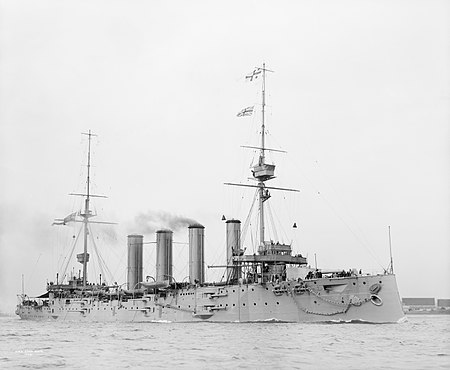
Enlisted 1st September 1914; name on the Menin Gate.
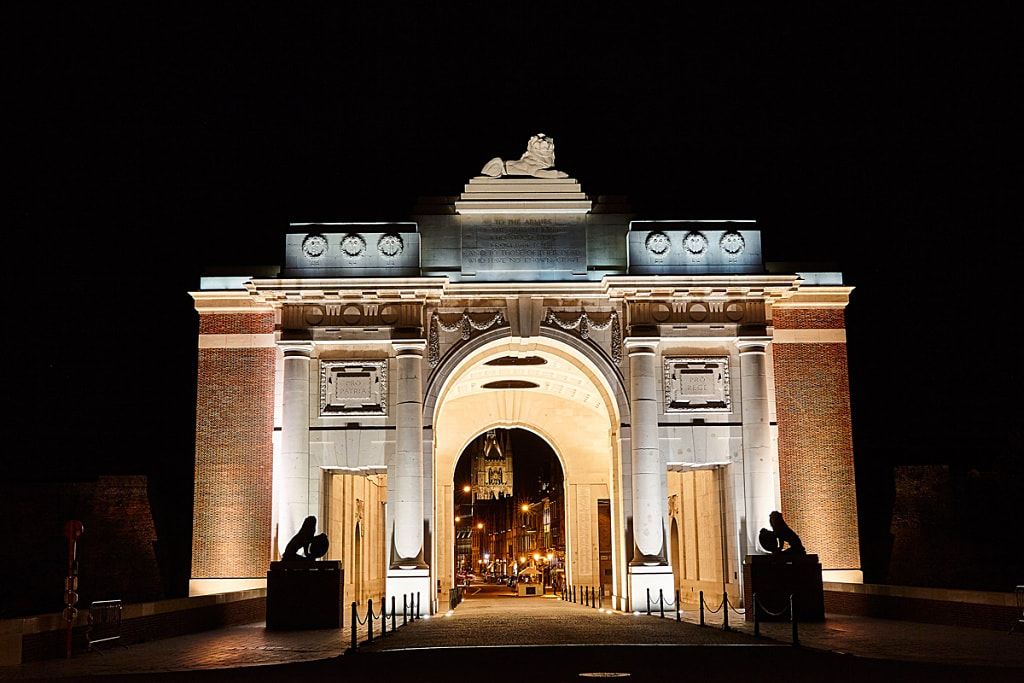
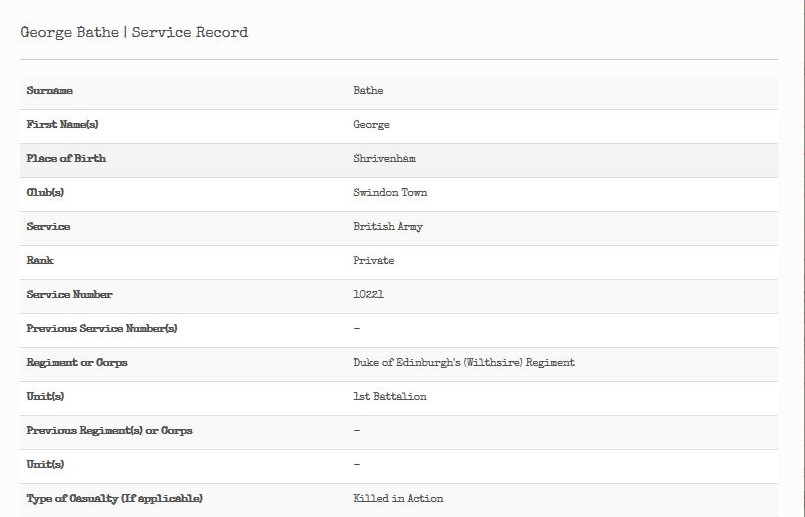
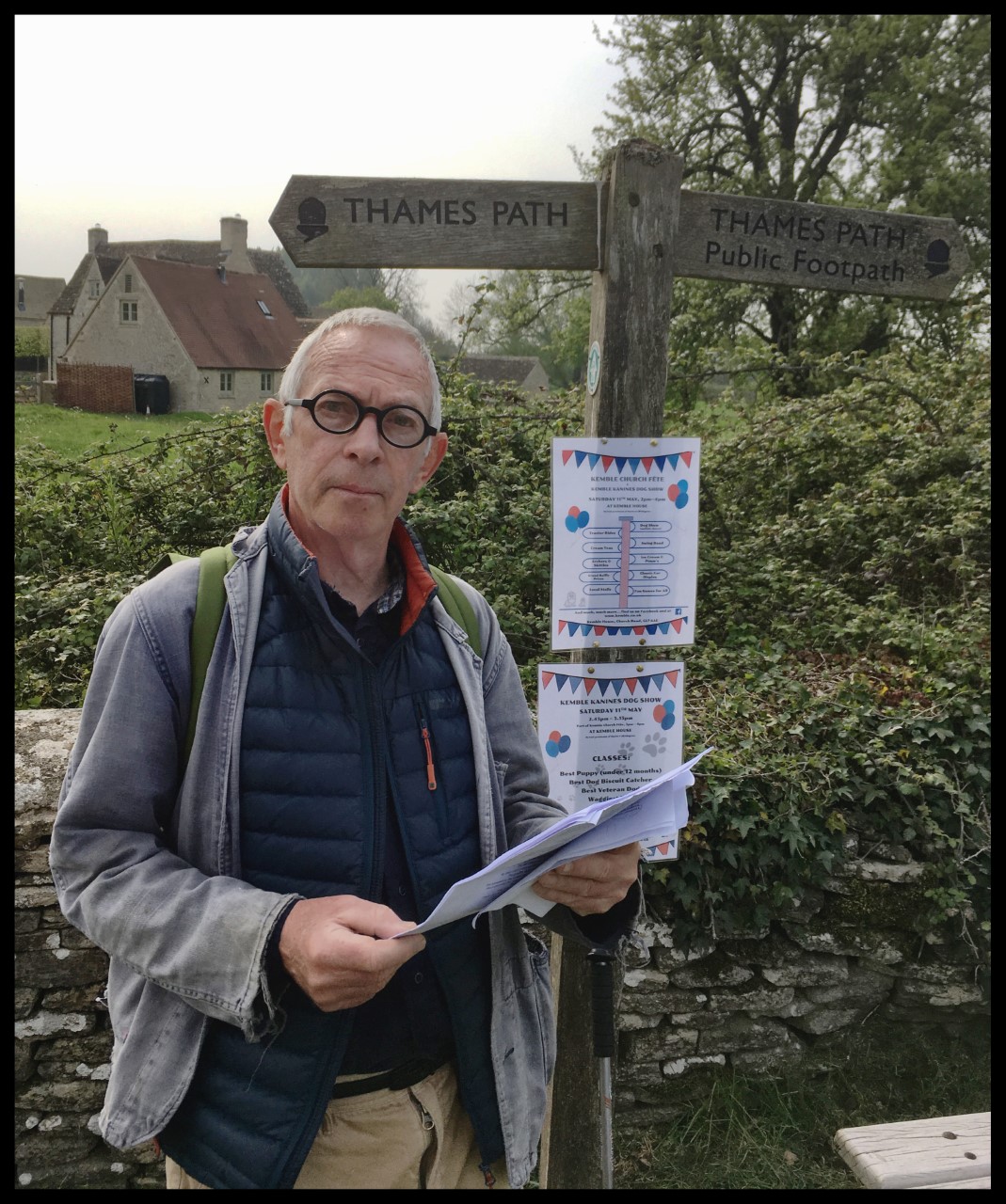
Stuart Butler
I wrote this after contacting STFC and Northampton Town FC. I arranged a ceremony for Walter Tull, first officer of colour in the British Army, KIA 1918, when Swindon entertained Northampton in 2018. Walter had played for Spurs and Northampton before volunteering. He was so loved by his men that they went out into No Man's Land to try and retrieve his body. We had a reading from a Northampton supporter and Swindon teacher at the Cenotaph before our walk of Remembrance. The bells of Christ Church pealed for us. It was utterly moving. The constant, pelting rain seemed appropriate.
But we hope you will enjoy slipping down some wormholes of time on this website.